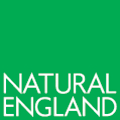Submitted by Lee Walker on
A new study on poisoning in red kites in Britain has recently been published in the European Journal of Wildlife.
The study, in which the PBMS was a collaborator, examined 162 individuals found dead between 1989 and 2007, of which 110 were submitted for toxicological analysis. In all, 32 of the 110 kites were diagnosed as poisoned and this was attributed to exposure to second-generation anticoagulant rodenticides, other pesticides or lead. It was concluded that poisoning of red kites may be slowing their rate of population recovery and range expansion in England.
The full citation for the work is: Molenaar, F. Jaffe, J.E. Carter, I., Barnett, E.A., Shore, R.F, Rowcliffe J.M., Sainsbury, A.W. 2017. Poisoning of reintroduced red kites (Milvus milvus) in England. European Journal of Wildlife Research 63 94. https://doi.org/10.1007/s10344-017-1152-z
Recent media comment on the findings of the study can be found at: http://www.bbc.com/news/science-environment-42097801
Data on more recent exposure of red kites to second generation anticoagulant rodenticides are described in a recent report (Walker et al., 2017) in the reports section on the PBMS website and can be downloaded directly here. This report represents collaboration between partners that has been facilitated through the WILDCOMS network.






